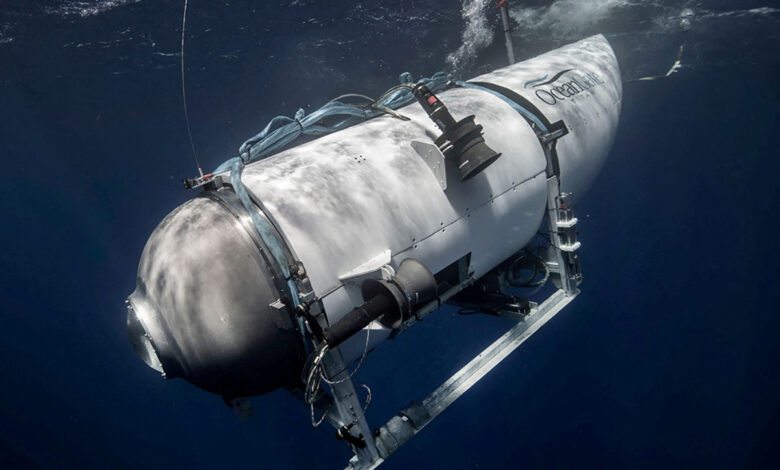Titan owner OceanGate has options for legal protection, law professor says

The owner of a small submarine that imploded and killed five people en route to the wreckage of the Titanic has legal avenues to seek legal protection from costly litigation, a maritime law professor at Tulane University in Louisiana said Friday.
Martin Davies said OceanGate Expeditions has the option to file through a maritime limitation of liability. If the application is successful, a court will set a cap on the amount the company would have to pay if it were successfully sued by relatives of the five people who died on the day of the death. Titan.
“Whenever it comes up in a personal injury context like this, everyone is shocked to find out that the shipowners can limit liability,” Davies said in an interview.
The Titan traveled below the surface of the North Atlantic on Sunday, about 700 kilometers off the southeast coast of Newfoundland. It lost contact with surface ships about an hour and 45 minutes after its descent to Titanic. Officials said it imploded and burst apart in the water column above the famous shipwreck nearly four kilometers below the sea. All five on board are presumed dead, including Stockton Rush, OceanGate’s CEO.
The company is facing intense investigations into the safety of its ship after letters and lawsuits were uncovered by several news organizations showing experts have been raising concerns for years.
It is not yet known whether the company will seek to limit its liability. OceanGate Expeditions representatives said they have no comment beyond a Thursday statement announcing that the Titan’s passengers were presumed dead.
However, Davies said OceanGate has the option of taking legal action to limit the amount it could owe. But first it will have to figure out where it can – and where it wants – to file the case.
Disasters in international waters create a tangle of jurisdictional issues Titan implosion is no different, he said.
The submarine belonged to OceanGate, a US company based in Washington, but the small craft was taken to its remote location by Canada’s Polar Prince. That ship, a former Canadian Coast Guard ship, is owned by the Miawpukek First Nation in southern Newfoundland. Polar Prince sails under the Canadian flag and must therefore comply with the regulations of that country.
It is unclear whether the Titan was marked, Lieutenant Samantha Corcoran, a spokeswoman for the US Coast Guard in Boston, Massachusetts, said Friday. The Coast Guard is “still working out the details,” she said.
Those ambiguities could allow OceanGate to file for liability protection in the country where the application is most likely to succeed, Davies said. Canada and the United States are among many countries with maritime limitation of liability laws.
“If I advised OceanGate, I would say they should start a statute of limitations process in Canada,” he said. “Canadian law is much more favorable to them than US law.”
For a liability protection case to be successful, the owner must prove it was far enough away from any wrongdoing. It’s harder to do that in the US than it is in Canada, Davies said.
A recent amendment to the US liability law – which dates back to 1851 – would also likely bar the company from using it, he added.
In Canada, the limit is calculated using a formula that includes the weight of the vessel.
Twain Braden, a maritime attorney in Maine, said OceanGate could have a hard time proving it had no knowledge of the circumstances surrounding the Titan implode. He pointed to a letter written in 2018 by submarine engineers and other industry professionals expressing concern about the Titan’s lack of certification and warning that the company’s “experimental” approach could have “catastrophic” consequences. .
“In this case, they are aware – very specifically – about possible problems with the submarine,” Braden said in an interview.
Braden said the situation is sad and complicated, adding that while “maritime law nerds” like him watch with great interest, they are also heartbroken for the families of those who lost their lives.



